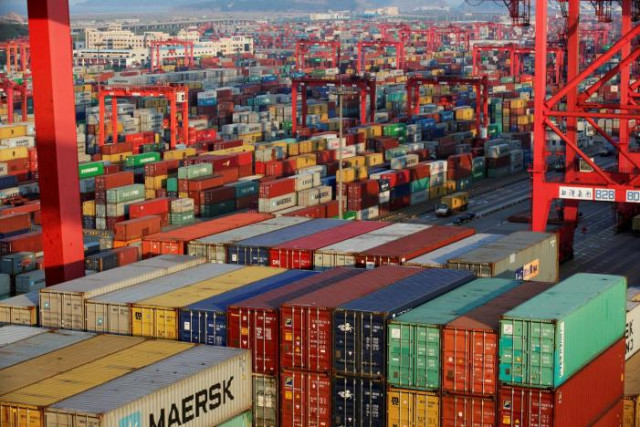Pakistan, Turkey: Local businesses feel neglected as FTA progresses
Experts say prevailing disharmony in policies will diminish benefits of agreement

PHOTO: REUTERS
Industry experts say that the prevailing disharmony in policies would diminish the benefits of the agreement. They advised that the FTA would deliver better if designed in line with the input given by the local industry and investors.
Sixth round of FTA talks to be held in April
They also opined that the FTA with Turkey should be based on mutual benefits and should consider existing players who have invested and brought FDI in the country.
"If FTA with Turkey reduces duties on imports of products which are produced locally then importers may benefit but local investment in setting up plants and producing goods could be harmed," they said, adding that local industries could roll back their investment and shut down their plants to import goods through FTA thus leaving thousands of people jobless.
Sindh Board of Investment, in a letter to Sindh chief minister, federal ministries of commerce and industries, Federal Board of Investment and TDAP, also raised concern on the FTA with Turkey.
''FTAs are meant to boost trade between countries and open markets for your goods, but unfortunately, in Pakistan, all FTAs and PTAs have only resulted in increase in trade deficit," the letter stated.
Ameen Jan, a consultant who has previously worked at McKinsey and the UN, while talking with group of journalists on Tuesday suggested that FTA should support import of raw material instead of finished goods that are already manufactured in Pakistan, as raw material would encourage local investors to enhance their productivity while taking the benefits of low-priced raw material.
FTA between Pakistan, GCC on the cards
He added that industrial policy, trade policy and export promotion policy should be the foundation of economic growth; trade agreements should support these policies and not be unrelated to them.
Published in The Express Tribune, April 12th, 2017.
Like Business on Facebook, follow @TribuneBiz on Twitter to stay informed and join in the conversation.



















COMMENTS
Comments are moderated and generally will be posted if they are on-topic and not abusive.
For more information, please see our Comments FAQ